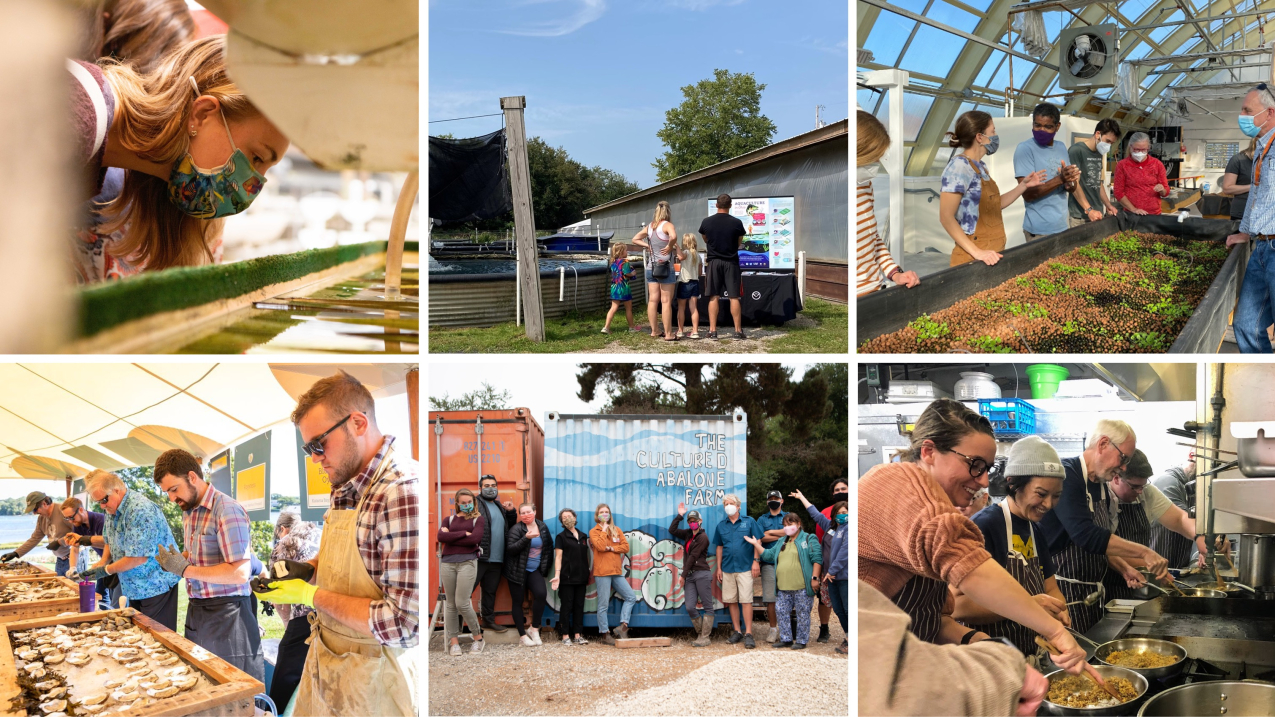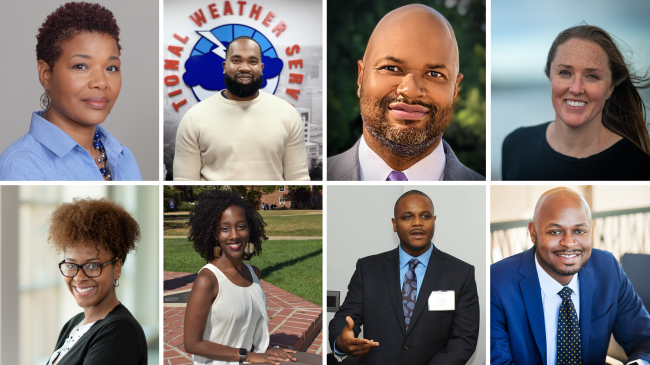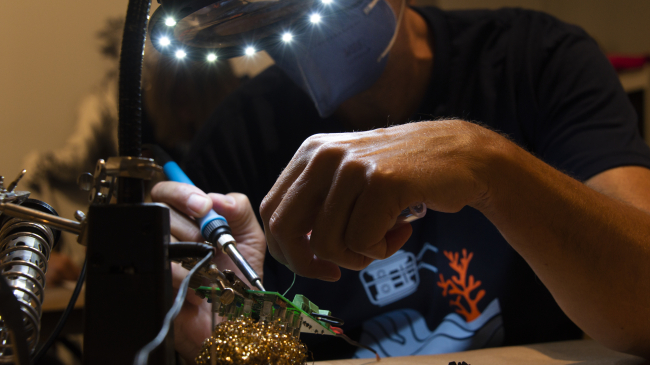NOAA Fisheries, the National Sea Grant Office, and NOAA's Office of Education have worked together since 2017 to coordinate NOAA’s efforts supporting aquaculture literacy. In 2022, NOAA launched a new aquaculture literacy website to share updates on their efforts and enhance public understanding of aquaculture. This site provides a hub for the Community of Practice for Aquaculture Literacy, offers resources for educators and practitioners, and shares information about new mini-grant projects.

eeBLUE aquaculture literacy awardees are partnering across sectors to offer everything from cooking classes with K-12 teachers to creating innovative aquarium exhibits, and more. Top (left to right): The Cultured Abalone Farm, Ohio Sea Grant, Canopy Farms and Kaskolos Sea Vegetables. Bottom (left to right): Martha's Vineyard Shellfish Group, The Cultured Abalone Farm, Canopy Farms and Kaskolos Sea Vegetables! (Image credit: Photos courtesy of eeBLUE Harvest stories)




